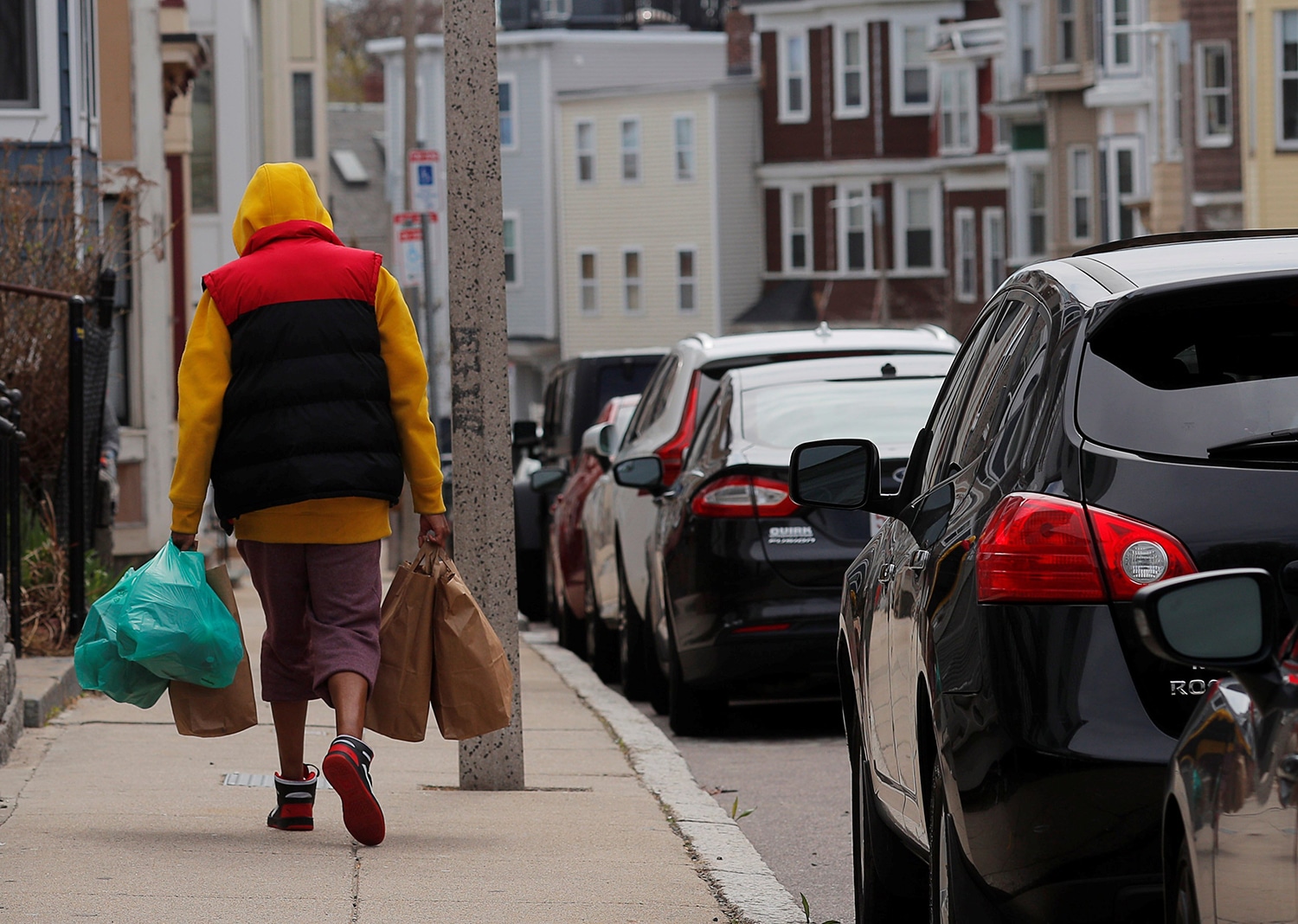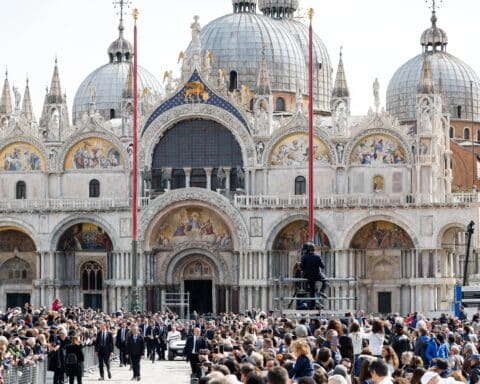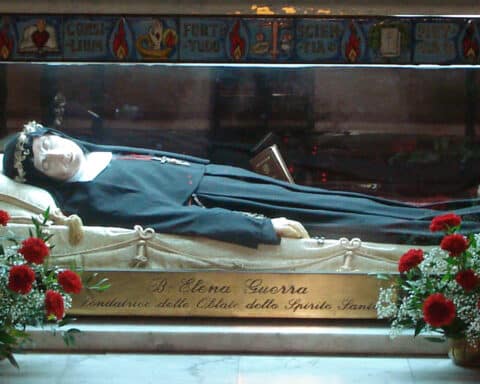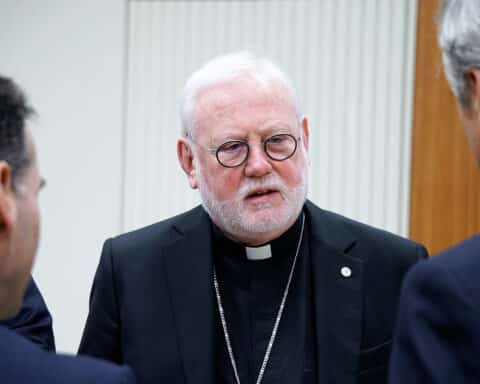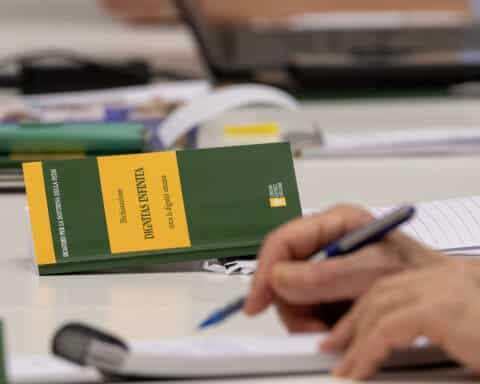(OSV News) — A number of Catholic pastoral leaders in the U.S. are applauding a new Vatican declaration on human dignity for its specific treatment of several key — and contentious — issues.
Dignitas Infinita (“Infinite Dignity”), released April 8 by the Vatican’s Dicastery for the Doctrine of the Faith, recounts the biblical and magisterial basis for the Catholic Church’s understanding of human dignity as inherent, since it ultimately flows from the human person’s creation “in the image and likeness of God” and redemption in Christ.
Declaration on human dignity
The document, written by dicastery prefect Cardinal Victor Manuel Fernández, was approved by Pope Francis March 25, following a five-year course of preparation that “reflects the gravity and centrality of the theme of dignity in Christian thought,” the cardinal wrote in his opening presentation.
He also noted that “the text required a considerable process of maturation to arrive at the final version that we have published today.”
Cardinal Fernández wrote that while there is “widespread agreement” on the importance of human dignity, the term “risks lending itself to a variety of interpretations that can yield potential ambiguities.”
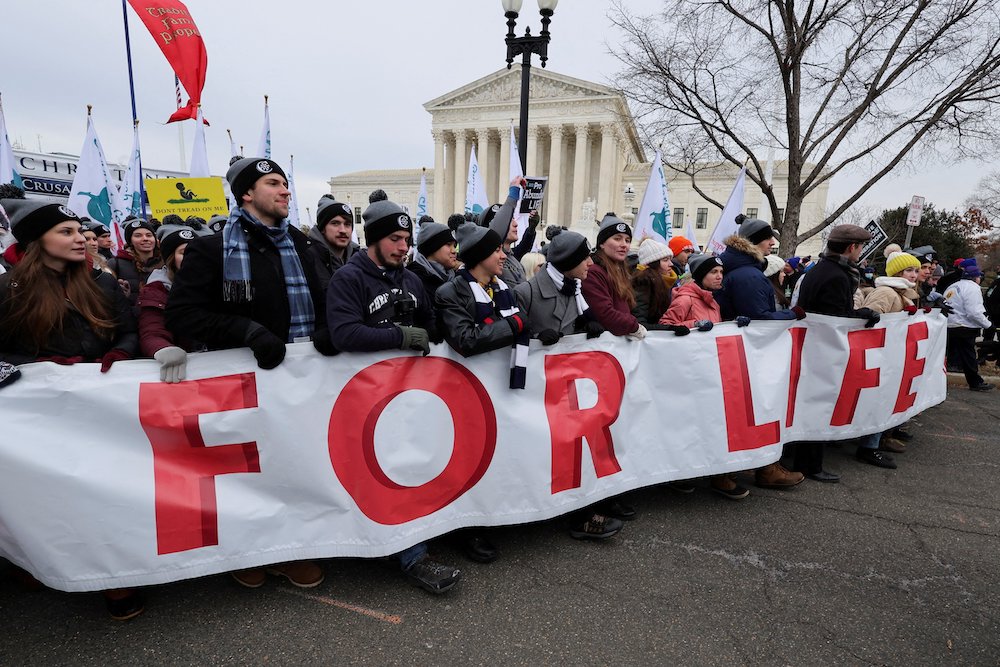
Protecting the dignity of the human person
“We are grateful to receive this declaration on human dignity, and the U.S. bishops along with the whole Church, will be studying and reflecting on it,” Chieko Noguchi, spokesperson for the U.S. Conference of Catholic Bishops, told OSV News.
Noguchi said that “the document emphasizes the long tradition of the Church on the importance of always recognizing, respecting, and protecting the dignity of the human person in all circumstances, and how that needs to be understood, celebrated, and applied to the various situations and challenges we face today.”
The declaration specifically addressed “some grave violations of human dignity that are particularly relevant,” specifically poverty, war, threats to migrants, human trafficking, sexual abuse, violence against women, abortion, surrogacy, euthanasia and assisted suicide, the marginalization of people with disabilities, gender theory, sex change interventions and digital violence.
The list was not “exhaustive,” said the text.
Catholic pastoral leaders interviewed by OSV News said they welcomed the declaration’s direct treatment of such topics.
Jesuit Father James Martin’s response
Jesuit Father James Martin, founder of the Outreach ministry to LGBTQ Catholics, told OSV News the passages on gender theory and sex change were “not surprising” as they “seem in line with previous Vatican statements.”
While deploring violence and discrimination against those struggling with their gender and sexual identity, the declaration reaffirmed Church teaching on gender, describing sexual difference as “the greatest possible difference that exists between living beings,” which in humans “becomes the source of that miracle that never ceases to surprise us: the arrival of new human beings in the world.”
Father Martin said he was “grateful especially for the condemnation of violence against LGBTQ people worldwide, including the criminalization of homosexuality and the execution of gays and lesbians.”
“I hope that it reminds people, including our pastors and bishops, of the Church’s stance against harassment or any kind of violence against LGBTQ people,” he said. “At the same time, I hope that the sections on ‘gender ideology’ aren’t used as a weapon against transgender people themselves, who already suffer from the severest persecution and violence.”
Surrogacy and infertility
The declaration blasted surrogacy as a practice in which “the immensely worthy child becomes a mere object” and the woman, even if she freely participates, a “mere means subservient to the arbitrary gain or desire of others.”
Ann Koshute and Kimberly Henkel, founders of Springs in the Desert — a Catholic ministry to those struggling with infertility — commended that stance.
“We are grateful for the clear condemnation of surrogacy by the Holy Father, and exposing it for what it is — human trafficking,” Henkel told OSV News. “It is a tragedy when a mother is separated from the child she has carried within herself for nine months. This rupture of the bond between a mother and her child can create an attachment wound for both.”
“We hope this document initiates a wider conversation in the Church about the pain and vulnerability of couples struggling with infertility,” said Koshute. “And we want couples carrying this cross to know that they are seen and loved, to recognize that their marriage itself is a great good, and that they are especially powerful witnesses and signs of contradiction in the world.”
Inclusion of those with disabilities
The declaration called for “every effort” to be made “to encourage the inclusion and active participation of those who are affected by frailty or disability in the life of society and of the Church,” stressing that “each human being, regardless of their vulnerabilities, receives his or her dignity from the sole fact of being willed and loved by God.”
Charleen Katra, executive director of the National Catholic Partnership on Disability, told OSV News that “recognizing the innate dignity of every human person initiates from an appreciation of one’s own dignity, having been made in God’s image, and a selflessness that impels us to freely share the love we first received from Jesus Christ.
“Bonds of human love allow relationships to be built and faith communities to flourish, moving us away from a ‘throwaway culture'” — a term often invoked by Pope Francis — “or a ‘benefit vs burden’ mentality,” said Katra. “An impairment or a disability never diminishes what it means to be a human person. God’s artistry is on display calling us to slow down, to see our sister or brother in Christ as someone who can lead us in prayerful reflection and deepen our spiritual growth.”
Opposition to euthanasia and assisted suicide
The declaration warned that euthanasia and assisted suicide present “a special case of human dignity violation that is quieter but is swiftly gaining ground,” and refuted claims that such practices constitute “death with dignity” since “suffering does not cause the sick to lose their dignity, which is intrinsically and inalienably their own.”
Amanda Achtman, who works to end euthanasia and assisted suicide in her native Canada through her “Dying to Meet You” cultural conversation project, told OSV News that “conceding to a person’s suicidal ideation does not affirm their dignity; it offends against it.”
“To have reverence for a person’s dignity is to faithfully affirm that the world is better with them in it,” said Achtman, adding the document clarified that “people are not burdens; they have burdens.”
She also praised the declaration’s “explicit reference to the personalist tradition,” which “seeks a synthesis between the subjective and objective dimensions of … human life.
“This is particularly important when considering ethics because, in the face of objective truths, the drama of moral life consists in the human subject making a response to these truths with personal freedom and responsibility,” said Achtman.
Rejection of the death penalty
The declaration’s rejection of the death penalty, prisoner mistreatment and torture was “encouraging,” said Krisanne Vaillancourt Murphy, executive director of the Washington-based Catholic Mobilizing Network, which works to end capital punishment while fostering restorative justice.
“Every time the Church reiterates its full rejection (of) the death penalty — whether from the Vatican, from a local bishop, from a parish pulpit, or through a social ministry of the Church — it is an opportunity to evangelize about what it means to uphold the sacred value of each life,” she told OSV News. “Our U.S. context shows the dire need for such catechesis and instruction. … A unified Catholic voice against capital punishment in the U.S. has significant power to tip the scales towards the abolition of this deadly practice which defiles the sanctity of human life.”
Digital violence and human dignity
Digital technologies, though offering “many possibilities for promoting human dignity,” increasingly tend “toward the creation of a world in which exploitation, exclusion, and violence grow, extending even to the point of harming the dignity of the human person,” said the declaration.
The document’s inclusion of “digital violence” as an affront to human dignity is a “prophetic witness” to a violation that is “too often … obscured online,” Brett Robinson, associate professor of the practice in Catholic media studies at the University of Notre Dame’s McGrath Institute for Church Life, told OSV News.
“What the online environment lacks is an embodied encounter with others, direct contact with flesh and blood. It is in our bodies and in looking into the face of another that empathy arises and sustains us in more authentic forms of human community,” Robinson told OSV News. “It is why Christ himself chose the medium of flesh and blood to save us. The prevailing problems of the digital age will require a creative retrieval of embodied human practices like hearty handshakes, hugs, festive gatherings and true attentiveness to the other who sits across from us at the dinner table.”
Lesley Kirzeder, program director at the McGrath Institute’s “Contours of Wonder” initiative — which focuses on childhood and the liturgical imagination — agreed.
She told OSV News that “our ever-increasing time in the virtual world” results in mistaking ” the created world around us as one that is to be overcome and controlled rather than a symbol of God’s gratuitous love for us, to which we are compelled to respond.
“In the digital age, we have come to operate in thinner realities that we or others create, realities that turn us inward, instead of in the full and rich reality of God — one that points us outward toward the other, toward our neighbor and toward the Lord,” said Kirzeder.

